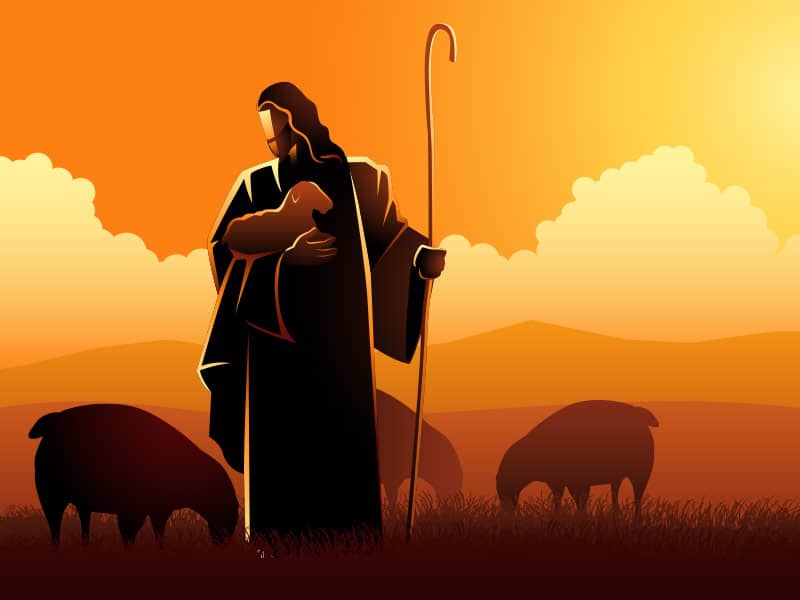"There's a certain way in which the assets and the gifts of the community come to the fore because you don't have the range of options," he said. "But they have their own charm and their own dignity."
(RNS) There's something new this Easter season at the front of the
sanctuary of Ozark Highlands Christian Church (Disciples of Christ), a rural
Missouri congregation of 50 worshippers.
To mark Lent and Easter, the pastor and a member with carpentry skills
fashioned a 6 1/2-foot rugged cross from an oak tree, placed it in a
Christmas tree stand and covered its base with a brown quilt to represent
the earth.
Each Sunday, elders carry forward symbols brought from home to recall
Jesus' Passion -- a crown fashioned from a member's thorn tree, a sign
reading "King of the Jews" in four languages, and a whip made from a leather
belt. On Easter Sunday, these stark symbols will be replaced with a brighter
one -- lilies placed on the cross to celebrate their belief in Christ's
Resurrection.
"It has brought the crucifixion and the Lenten season to life to help us
prepare and see that visually," said the Rev. Russ Hamilton, pastor of the
church in Rolla, Mo.
"I think that they will see just exactly what the Lord had intended --
to take the ugliness of the cross and make it beautiful."
For smaller churches, it can be a challenge to develop simple yet
symbolic ways of celebrating Easter, the annual holiday that usually swells
the number of congregants one spring Sunday.
"It is a struggle because we don't have a lot of resources to buy
banners," said Hamilton. "We don't have a lot of people to have a big
cantata. We don't have resources to really bring in a lot of big flowers.
... We try to use what we have."
As Christians pause to mark the Easter season, smaller traditions
surface across the country -- from those tired of the institutional church
to those who seek religious observance via the Internet or in new
congregations meeting for the first time.
Last year on Easter, author A.J. Kiesling recalled being squeezed into
an overflow area when her Episcopal church was filled with the regulars plus
the folks who tend to show up only on that holiday and Christmas.
The author of "Jaded: Hope for Believers Who Have Given up on Church But
Not on God" said she expects to either spend time in a natural setting or
join a fellowship of a dozen or so people at a community center this Easter
Sunday.
Alternatives to the larger services are as varied as the reasons people
may have left a traditional church setting, Kiesling has found from her
research. One woman who's been burned out after moving from church to church
told her of plans to spend Easter weekend at the movies and a Bible-focused
theme park.
"She's actually waiting to see `The Passion of the Christ' on Good
Friday," said Kiesling, a writer and editor in the Christian publishing
industry, in Orlando, Fla. "She wants to experience it on the day that
Christ was killed. Later on in the weekend, she's going to go to the Holy
Land Experience in Orlando."
Fay Key, a spiritual director of an ecumenical contemplative community
in Adrian, Ga., considers the Saturday before Easter "waiting by the tomb
day" and will spend the day in silence, recalling the sorrow of those who
accompanied Jesus to the cross. Then, at the conclusion of an Easter vigil,
she'll join about a dozen others in reading verses from the Gospels and
ringing bells to celebrate their belief in the Resurrection.
"I think that's one thing that maybe larger churches don't do as well --
is to remember that Good Friday comes before Easter Sunday," said Key of the
Green Bough House of Prayer, in an interview. "But the emphasis is always on
the final note, on the joy."
Another way individuals mark the Easter season is by going online.
Beliefnet.com, an interfaith Web site, offers an "interactive Lenten
calendar" with suggestions of how to mark each day (April 2: "Choose not to
honk."). Steven Waldman, the site's editor-in-chief, said a "flash"
devotional also has been popular. It features wood-block art of Jesus'
Passion, mournful music and words from the Catholic, Orthodox and Protestant
traditions.
"It seems like people use it ritualistically," Waldman said of the
devotional titled "Bitter Journey: The Way of the Cross."
"It's not just something they kind of look at once, but they actually --
at least some of them -- use it repeatedly."

